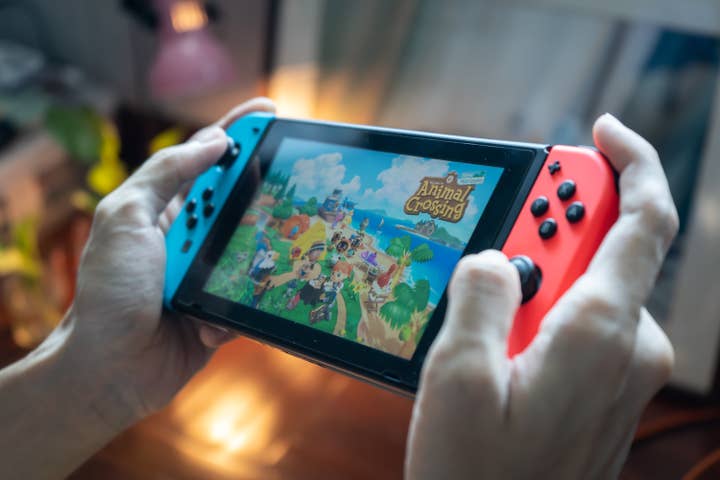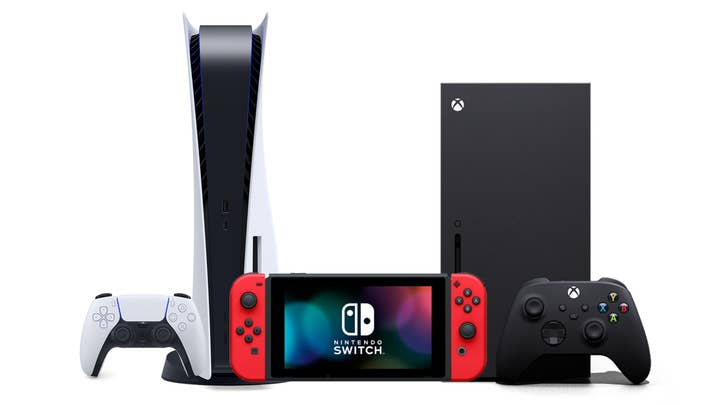Does a stuttering console space offer an opportunity for others? | Opinion
With Xbox pushing towards third-party, and PlayStation and Nintendo braced for a fallow year, the door is open for disruption in the games market
Everyone’s favourite candid games exec, Phil Spencer, was in the news last week discussing the concerning ‘lack of growth’ in video games.
He’s said it before and he’s not wrong. It’s one of the two big factors behind the industry-wide layoffs we’ve been reporting on (the other being the rapidly rising cost of everything). And for Xbox it’s particularly acute, because it’s in the growth areas where it’s looking to play. In a console market dominated by Sony and Nintendo, a mobile market ruled by Google and Apple, and a PC business controlled by Valve, Xbox has been trying to disrupt things, grow things and widen the market… go to places its rivals are not.
And the results have been mixed. Game Pass has clearly disrupted things, but it’s not transformed the business in the way subscriptions have in movies and music. Streaming isn’t quite there yet. And the Series S, which is designed to be a low-cost entry-level point to a new console generation, hasn’t succeeded in expanding the audience.
If I am to be slightly critical, for all these disruptive business moves, we’ve not really had the games to drive them forward. When Nintendo disrupted the market with Wii and DS some 20 years ago (how has it been that long?), it wasn’t just motion controls and touch screens that did it, but it was Wii Sports and Brain Training. Game Pass still hasn’t had that consistent stream of quality games needed to build momentum. Series S didn’t have that game, at least to begin with, to attract in new audiences.
Xbox’s first-party slate has had many excellent games in recent years, but when it comes to their biggest bets – namely Halo and Starfield – they just haven’t delivered. And third-party publishers haven’t stepped up, either, particularly with their reluctance to support Game Pass with new AAA games.
"Could the Xbox Summer Showcase be the first Xbox event that PlayStation and Nintendo fans will want to tune in to?"
Looking at the sales charts, Xbox – at least the one we’ve known for the past 20 years – seems under threat. Speaking to a major European retailer last week, I was told they ‘can’t shift anything with an Xbox logo on it’. And during GDC, two games publishers/developers independently told me they were struggling to justify supporting Xbox platforms. It’s not unusual for indies to express dismay at discoverability on PlayStation and Xbox hardware, but it’s rare to hear it from bigger players with larger marketing budgets.
In previous generations, this chatter would have spelled doom for a platform – just ask Nintendo about what happened to GameCube and Wii U when publishers and retailers started to back away. The world is different now, with digital downloading and direct-to-consumer distribution making retail less powerful, while the market is no longer dependent on a handful of big publishers. Even so, such scuttlebutt is hardly a vote of confidence.
Considering its position and the overall lack of industry growth, it makes sense that Xbox would double down on the area it’s well positioned to succeed in… as a games developer and publisher. It’s already got a line-up that is the envy of the industry – Call of Duty, Minecraft, Warcraft, Candy Crush – and an even larger slate of big brands beneath those.
Amongst the GDC chatter was the understanding that there are a lot more Xbox games coming to PS5 beyond the four they announced in January. And Xbox is one of the publishers that actually has some games coming out this year. Hellblade 2, Avowed and Indiana Jones may not be the biggest games IP, but in a year lacking in major releases, they all have a strong chance to cut through. And the more platforms those games can come to, the bigger the opportunity for Microsoft in the short-term.
(I am very intrigued to see what Xbox’s summer showcase event will be like in June. Could it be the first Xbox event that PlayStation and Nintendo fans should tune in to? Call of Duty alone should pull in a few PlayStation viewers.)
Releasing games on more platforms does place an even larger question mark over Xbox’s hardware business. Spencer gave some hints about what to expect in his Polygon interview, even suggesting that other digital games stores could sell via its platform. Could Xbox’s future as a hardware maker be in creating PCs that sit under the TV (or in your hand)? Like Steam Deck or the Asus Rog Ally or (going back a bit) the Steam Machines? PlayStation won’t be too concerned, but it’s a potentially compelling concept.
A lot of attention has been bestowed on Xbox’s troubles, but 2024 is shaping up to be a tough year for the entire console industry. Nintendo Switch is old now, and you can tell by the falling sales (at least in the West), the release slate (mostly remasters), and the technical quality of the games coming out. With Switch 2 not due until 2025, it’s going to be a long year for Nintendo.
PS5 sales are also slowing, and Sony has already admitted it doesn’t have any big game brands launching this year to change that. The third-party slate for 2024 is also somewhat lacking in big games. Of course, you never know what might break through (who would have predicted Palworld or Helldivers 2?), but it certainly doesn’t look strong at this point in the year.

A PS5 Pro is expected to launch, which will help Sony’s bottom line. But developers at GDC didn’t seem particularly excited about it, and the audience for this is likely to be existing PS5 players. It’s not something that will grow the market, which is a view we've heard from Take-Two’s Strauss Zelnick and Circana’s Mat Piscatella.
2025 looks more promising for consoles, with GTA 6, Switch 2 and we even know about things like Monster Hunter and Pokémon (in many ways, we know more about 2025’s big games than what’s coming up in 2024). But that doesn’t help the market now.
Does a stuttering console space offer an opportunity for others? Could Valve see this as a chance to push the Steam Deck harder? Could Epic Games make some real headway with its ‘Fortnite as a games platform’ vision? Could the VR industry, now with Apple involved, attract some new players? Perhaps. But also, maybe this is a chance for the likes of Netflix and Amazon to start really mixing things up. It’s rare for non-endemics to come into games and achieve long-term success, but it can happen, after all, Nintendo, Sony and Microsoft were all non-endemics at one point.
Microsoft has been trying to disrupt the games industry from within. But as we’ve seen many times down the years – from the first PlayStation to the iPhone – the biggest disrupters can come from outside games entirely. Could this be their moment?

